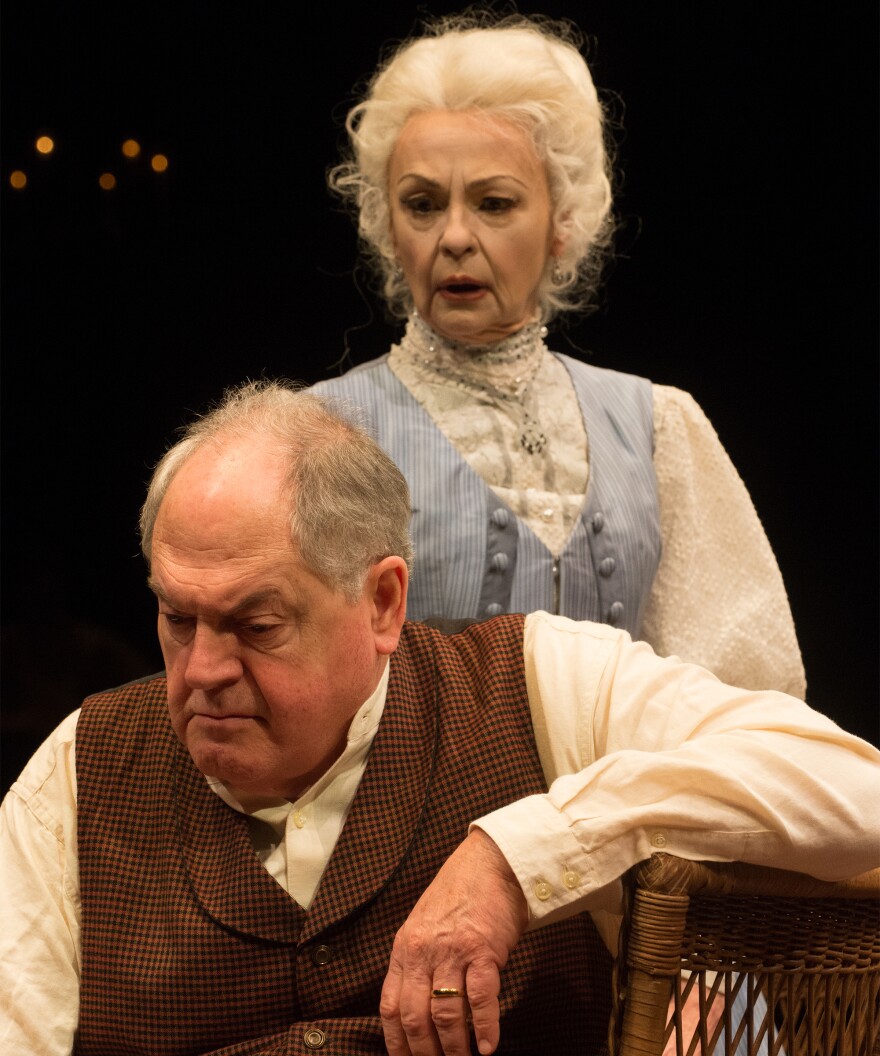“Long Day’s Journey into Night,” Eugene O’Neill’s gut-wrenching family drama, is playing in a superlative production at the Oregon Shakespeare Festival’s Thomas Theatre.
When O’Neill fashioned this play based on his miserable youth, he stipulated it could not be published until 25 years after his death, and never be performed. But after he died in 1953 his widow soon had it produced on Broadway, and it earned Pulitzer and Tony Awards.
Clearly it would have been too painful for him to watch, but thankfully audiences haven’t been deprived of this brilliantly told tale of family members who love each other but can’t help inflicting vicious wounds, sometimes inadvertently, sometimes deliberately.
We are fortunate to see it in such a fine rendition, but if you quake at spending nearly four hours with the archetypal dysfunctional family, or if you’re going to Ashland mainly to see “Guys and Dolls,” this may not be the play for you.
However, if you can take “Who’s Afraid of Virginia Woolf?,” you’ll appreciate this “Long Day’s Journey.” Long it is, and repetitious, but that’s how family stories are. We hear the mother’s version, then the father’s, then the sons add their interpretations. The dialogue circles around the issues, and finally vital new information comes to light.
Director Christopher Liam Moore guides his extraordinary cast with intelligence and sensitivity. Michael Winters is mesmerizing as the complex James Tyrone, a famous actor trapped in a swashbuckling role for most of his career because it’s such a moneymaker.
Equally fascinating is Judith-Marie Bergan as the lovely wife addicted to morphine since her younger son Edmund was born. Older son Jamie, a hopeless alcoholic, is played with touching pathos by Jonathan Haugen. When Edmund, the excellent Danforth Comins, learns he has TB, he almost welcomes the thought of death, and we can hardly blame him.
In much of the first act the men try to suppress conflict to avoid upsetting the mother. But in the second act emotions are unleashed, and truthful revelations are all the more powerful.
While watching the play I sometimes felt I was squirming in purgatory, along with the characters, but afterward, upon reflection, I had to admit: this is a great play.
Ashland Review: Long Day's Journey Into Night

photo Jenny Graham







